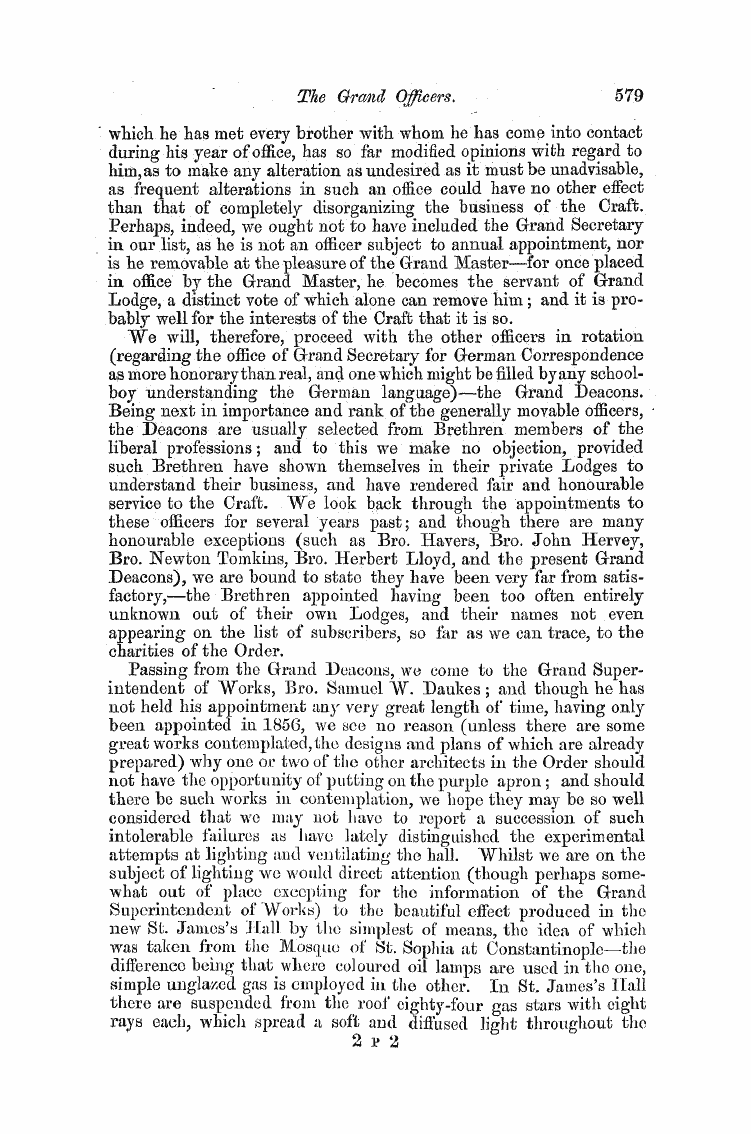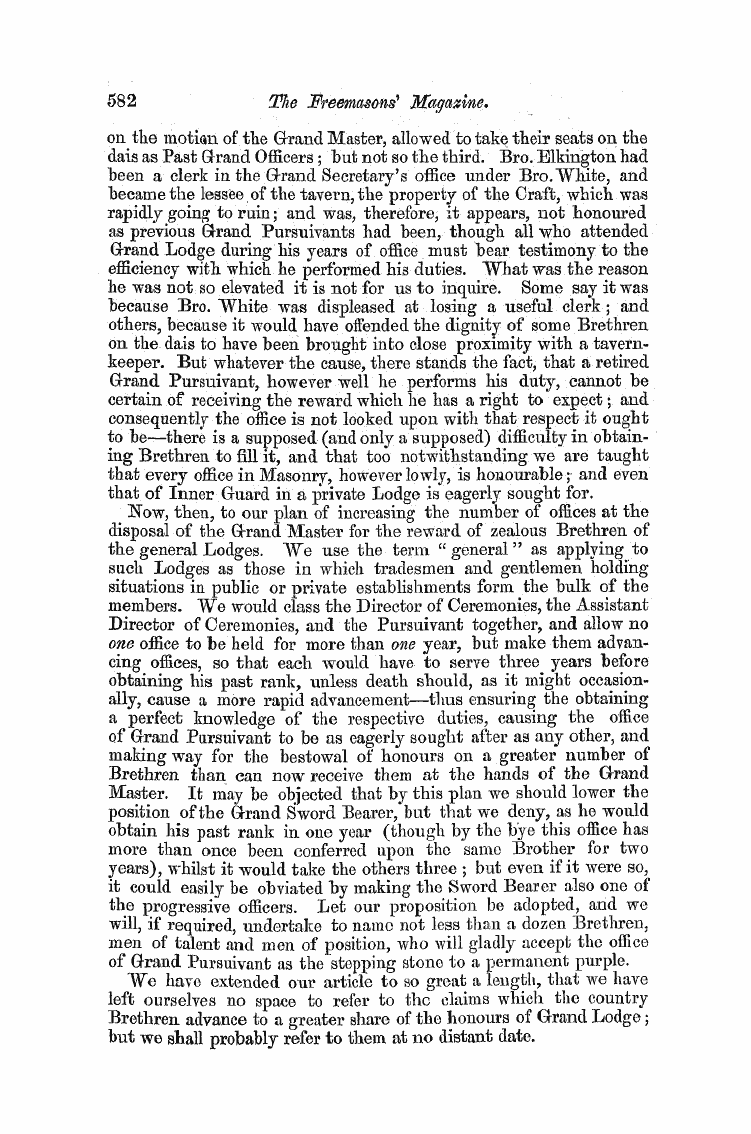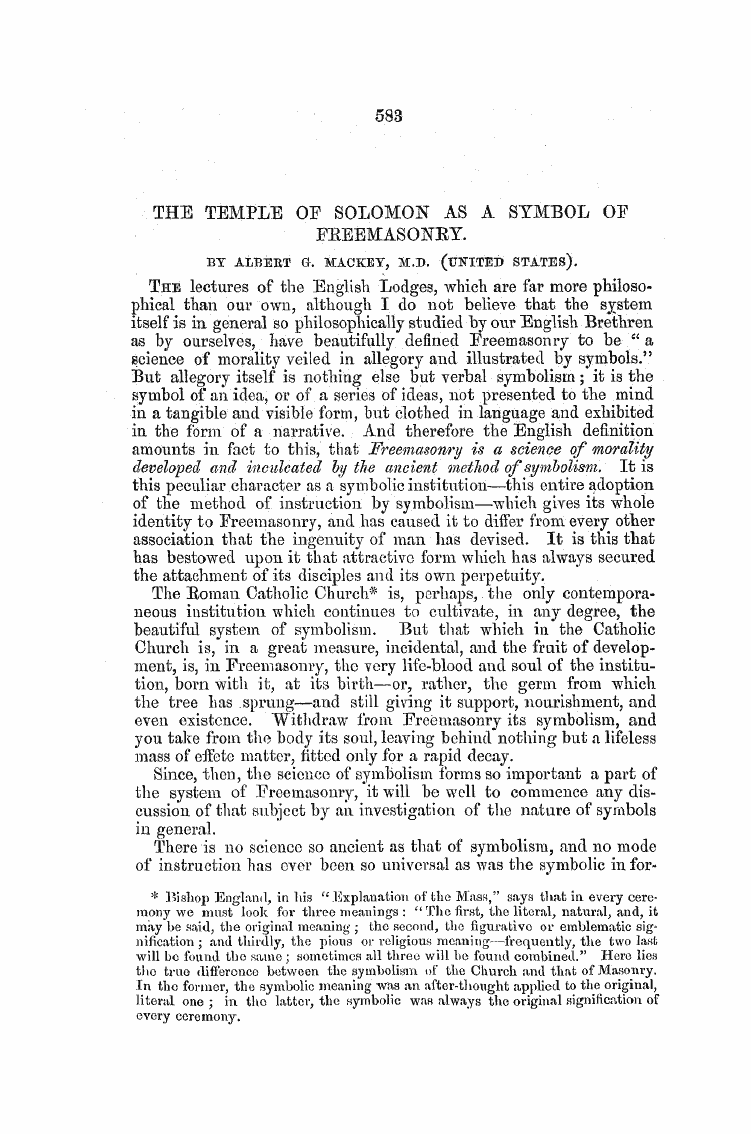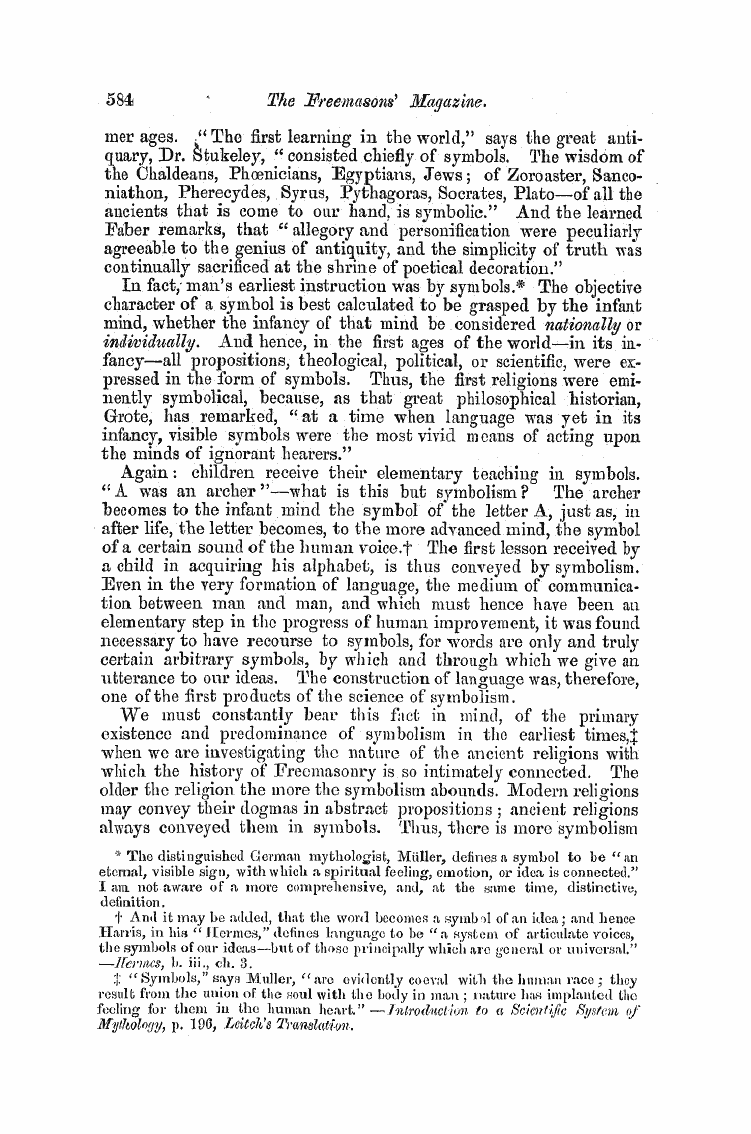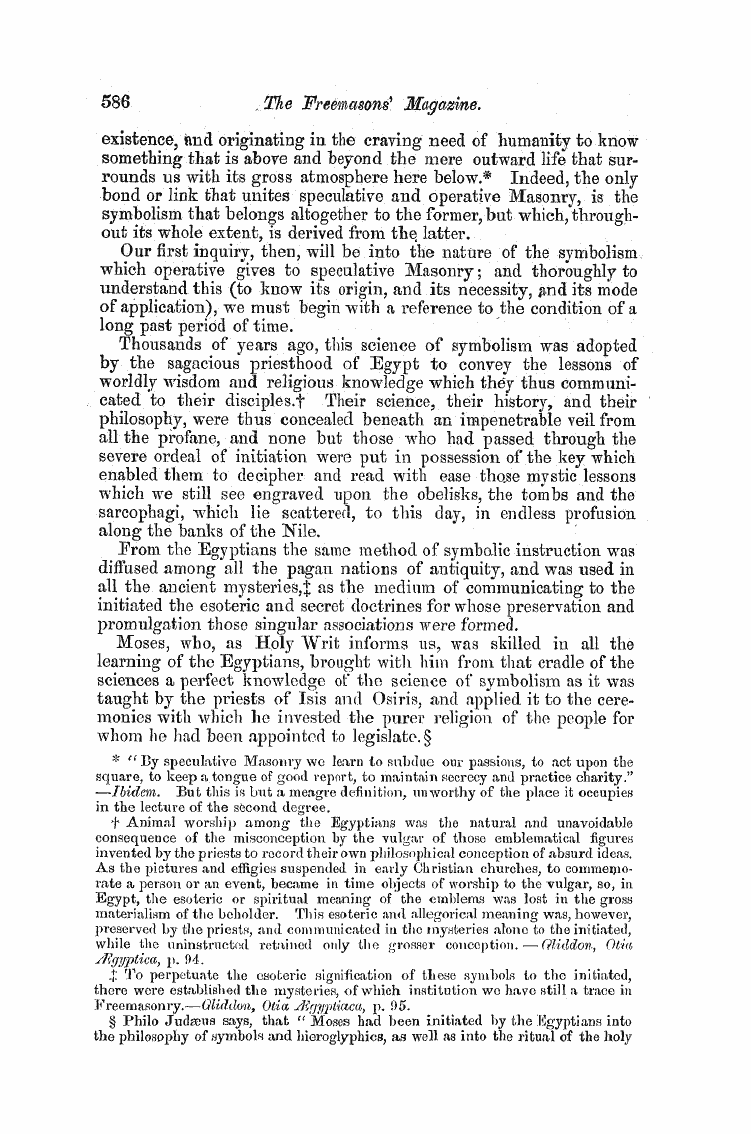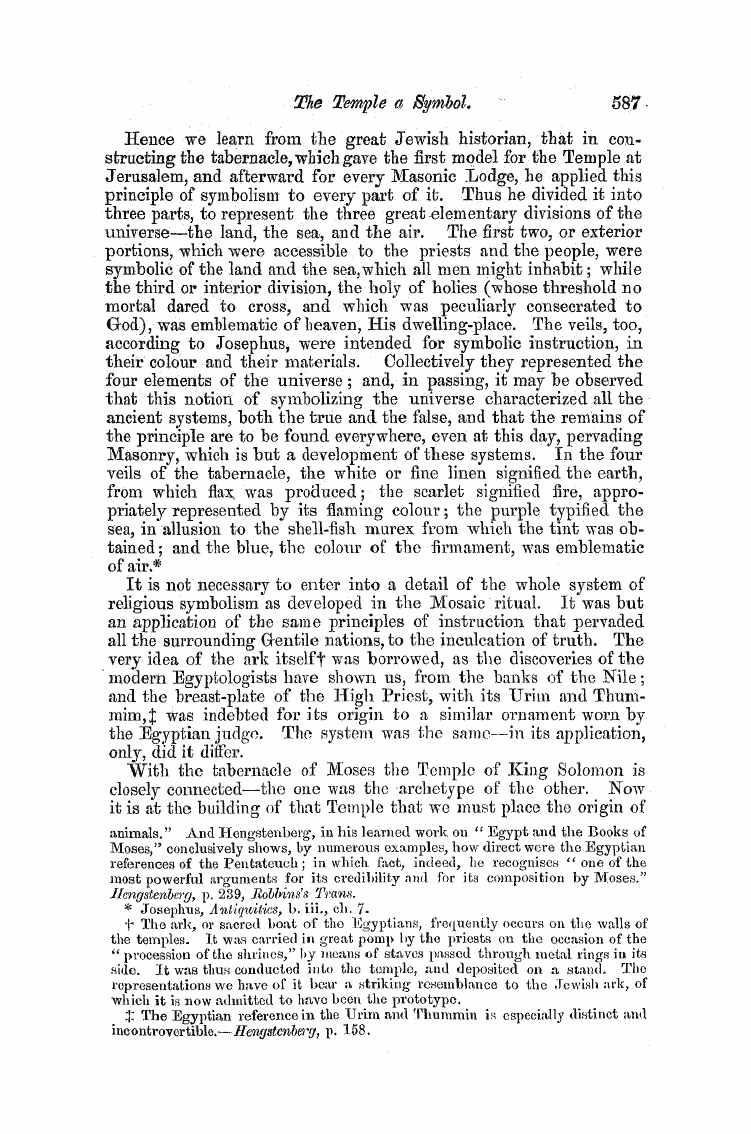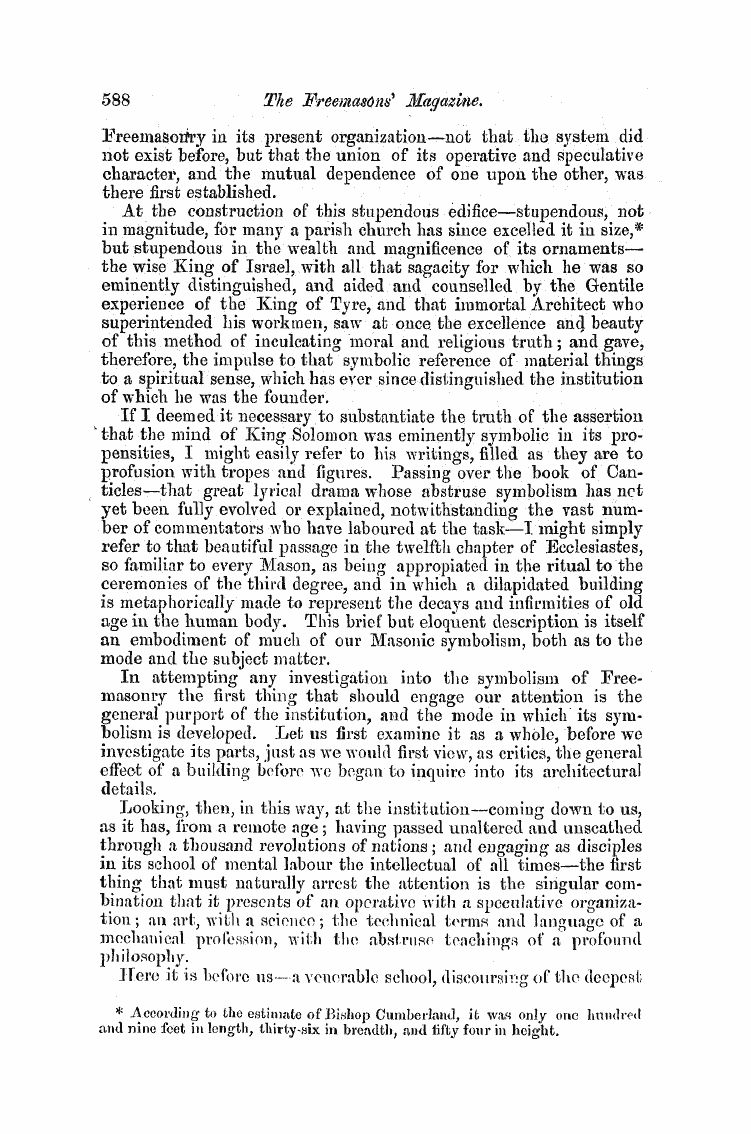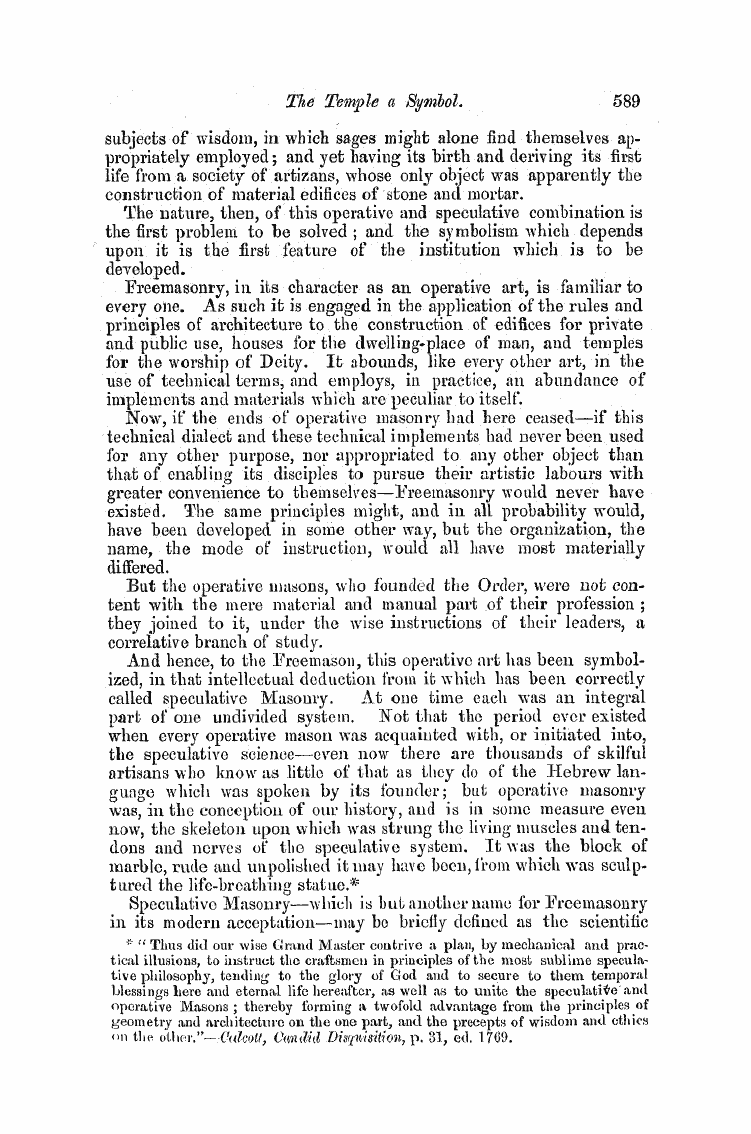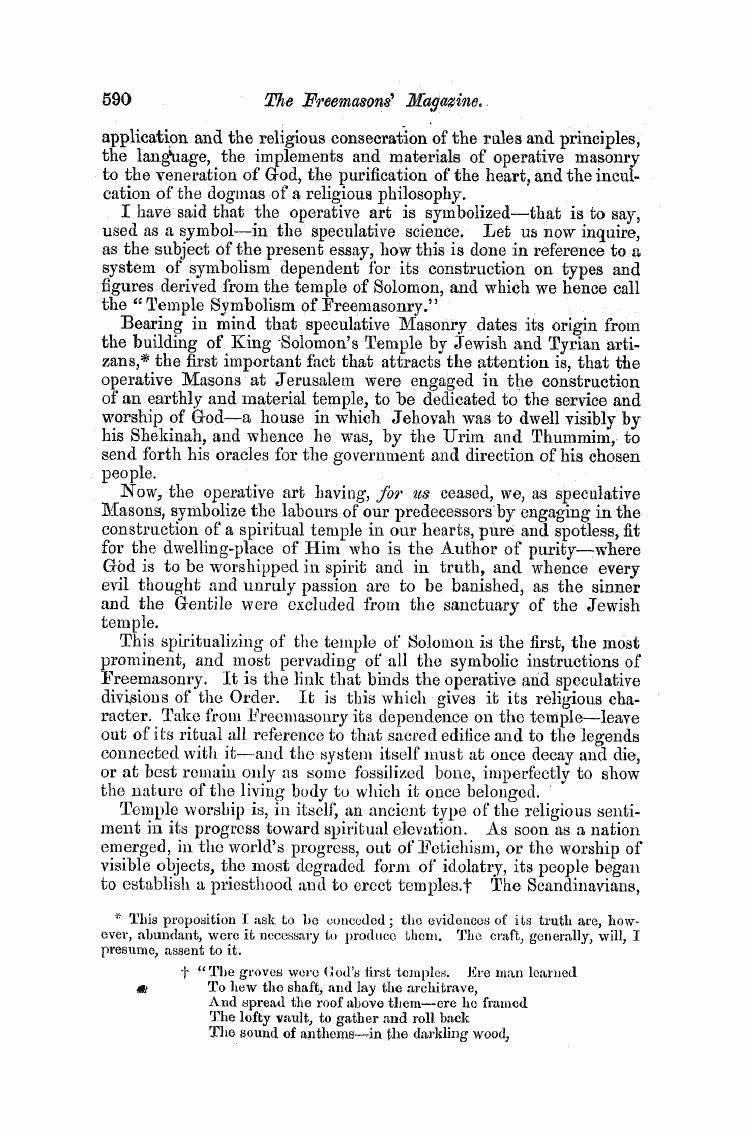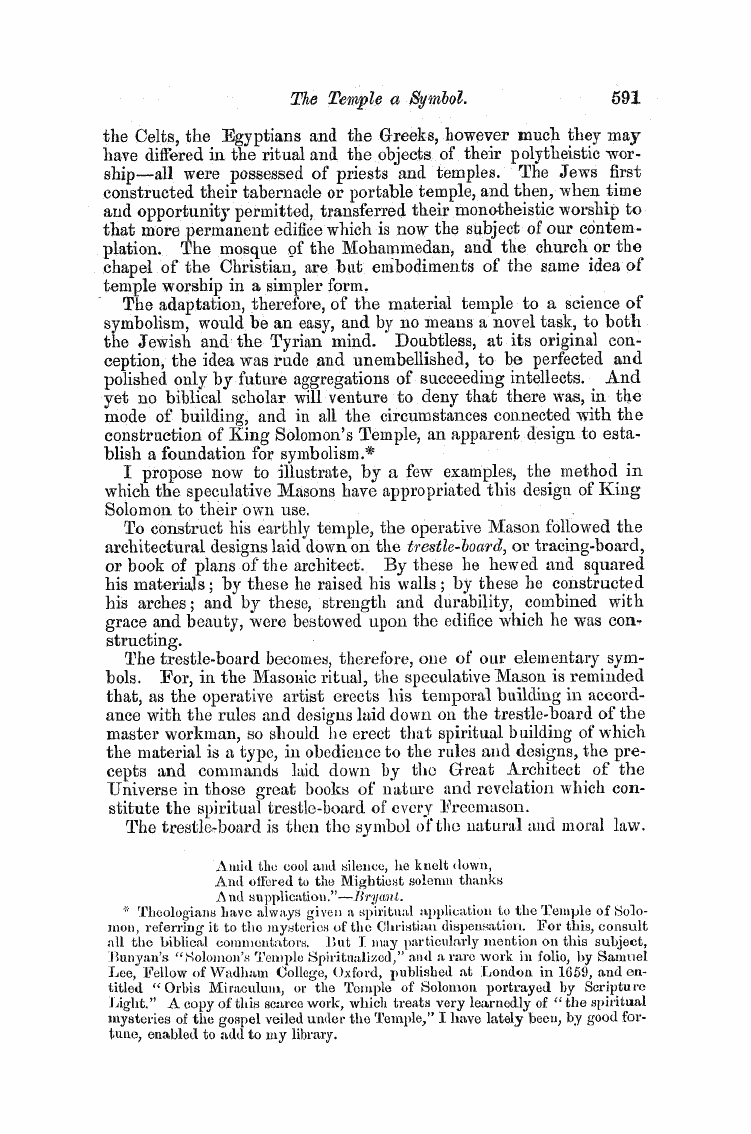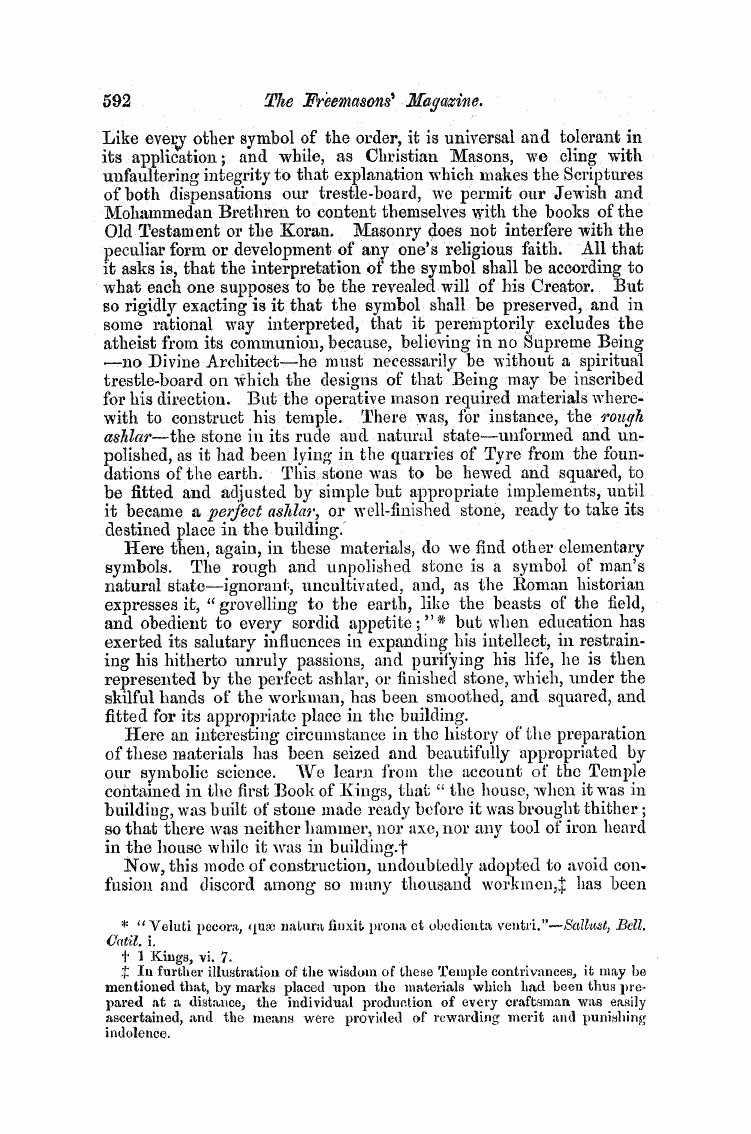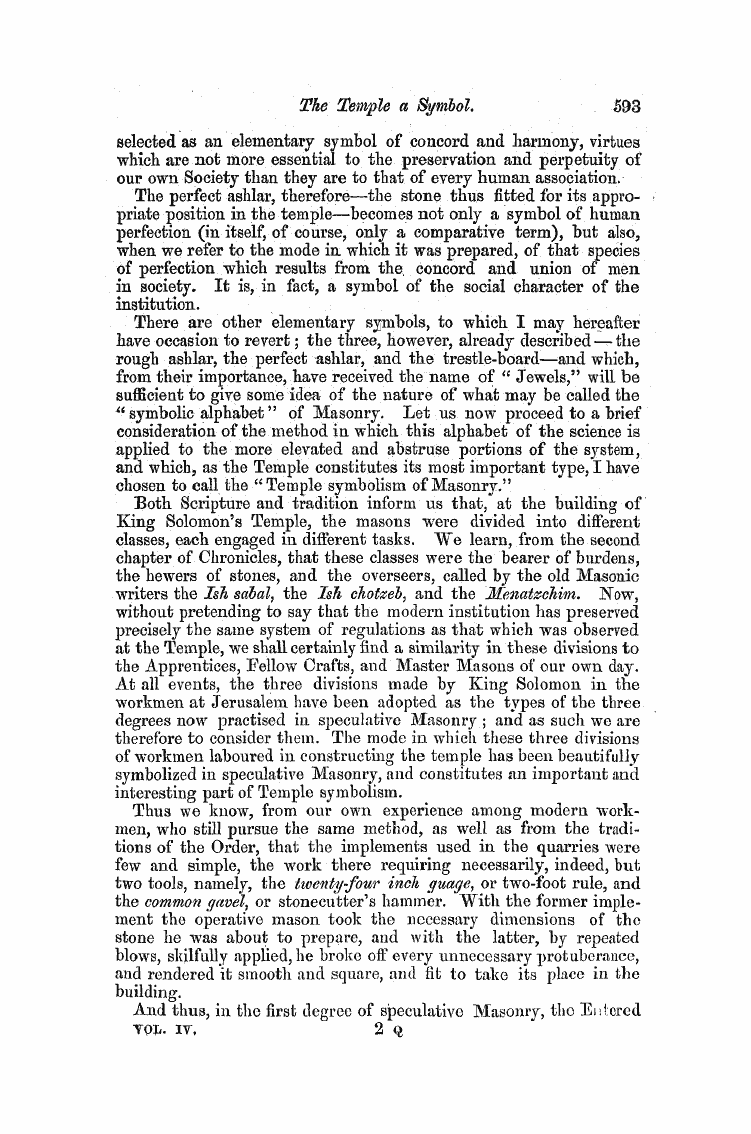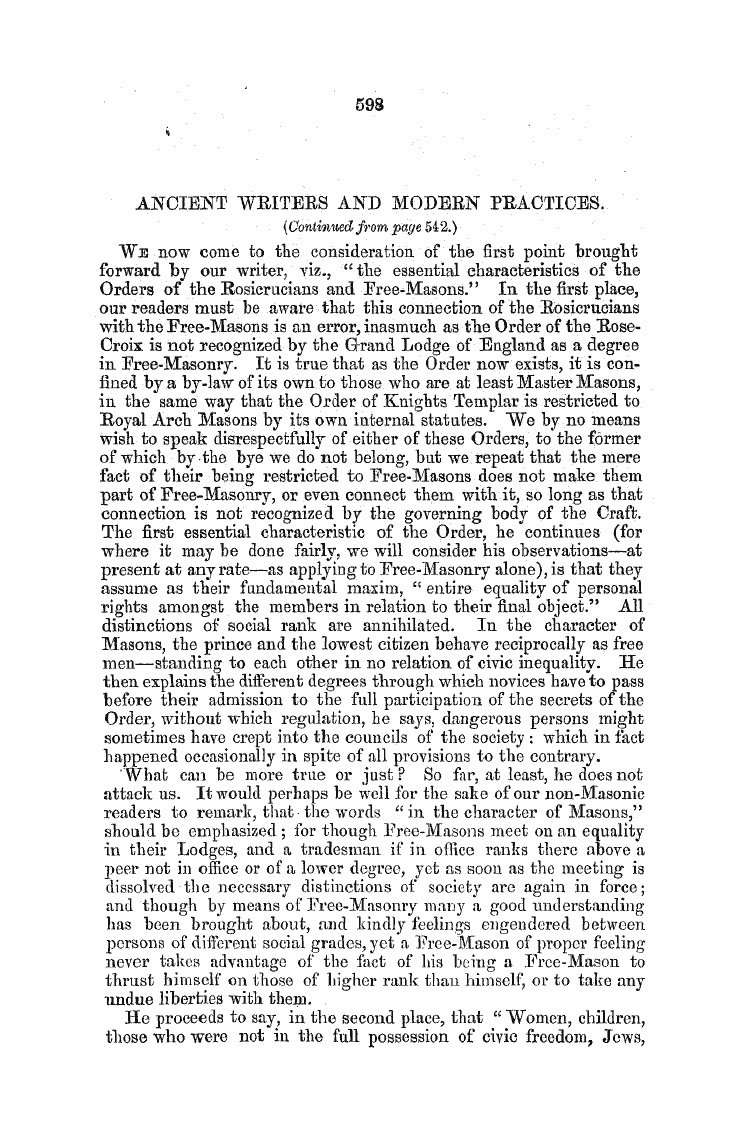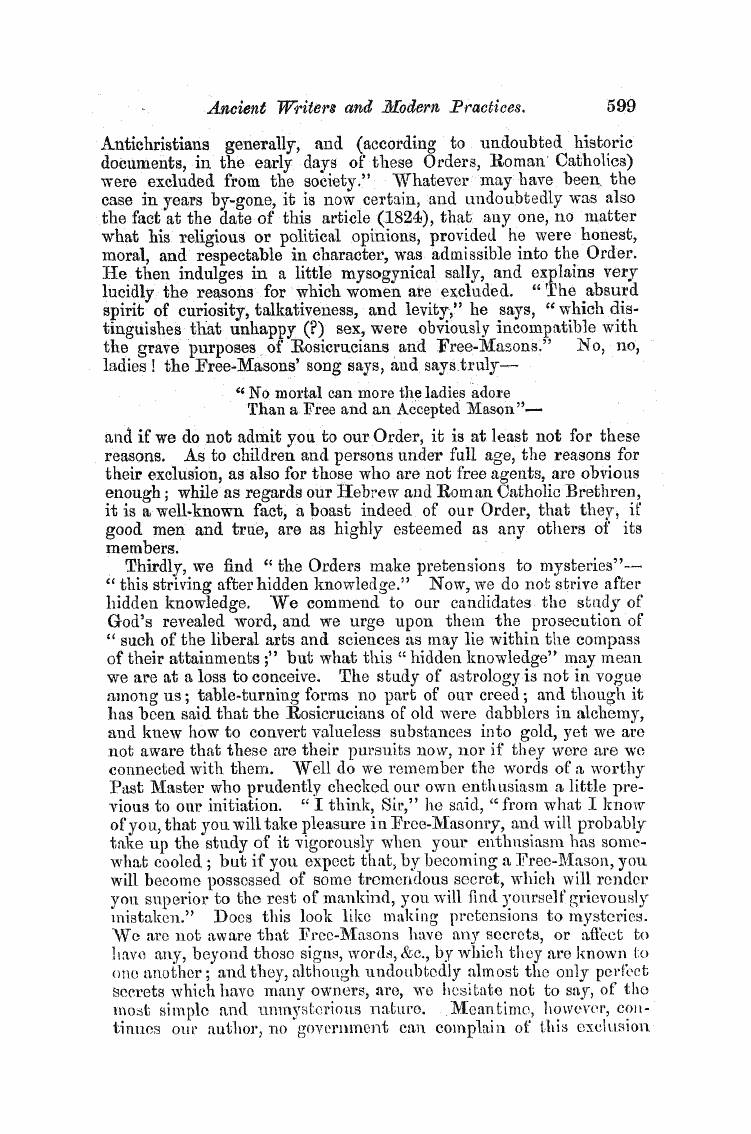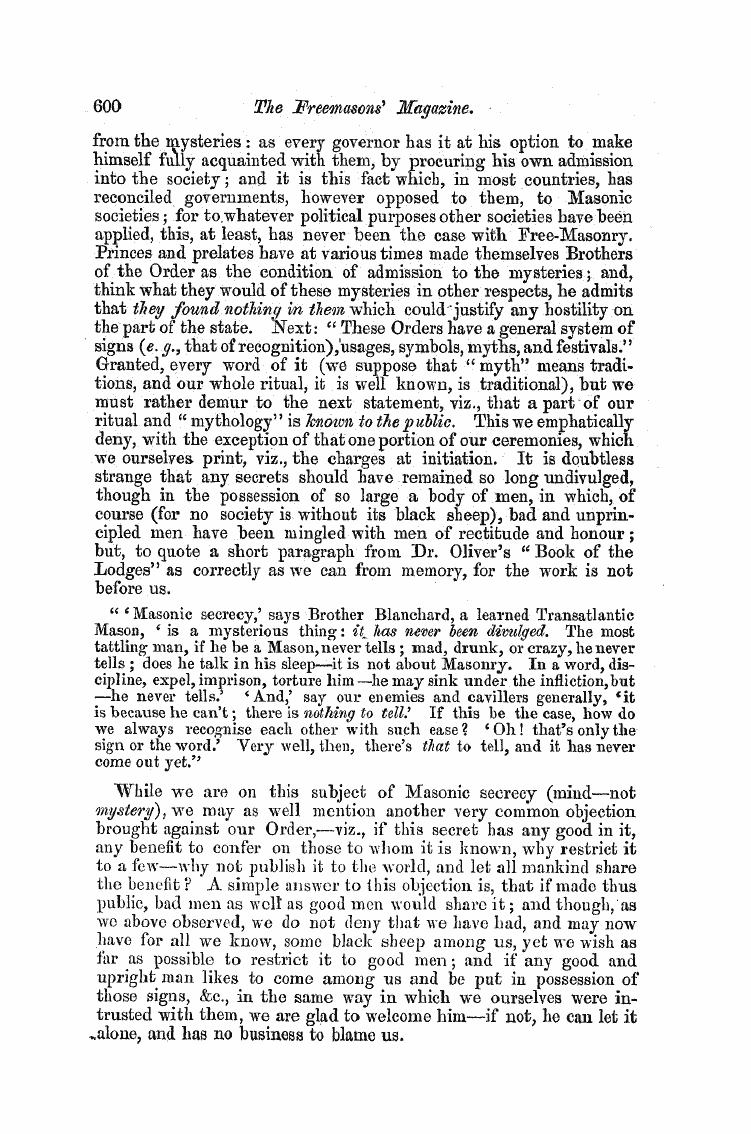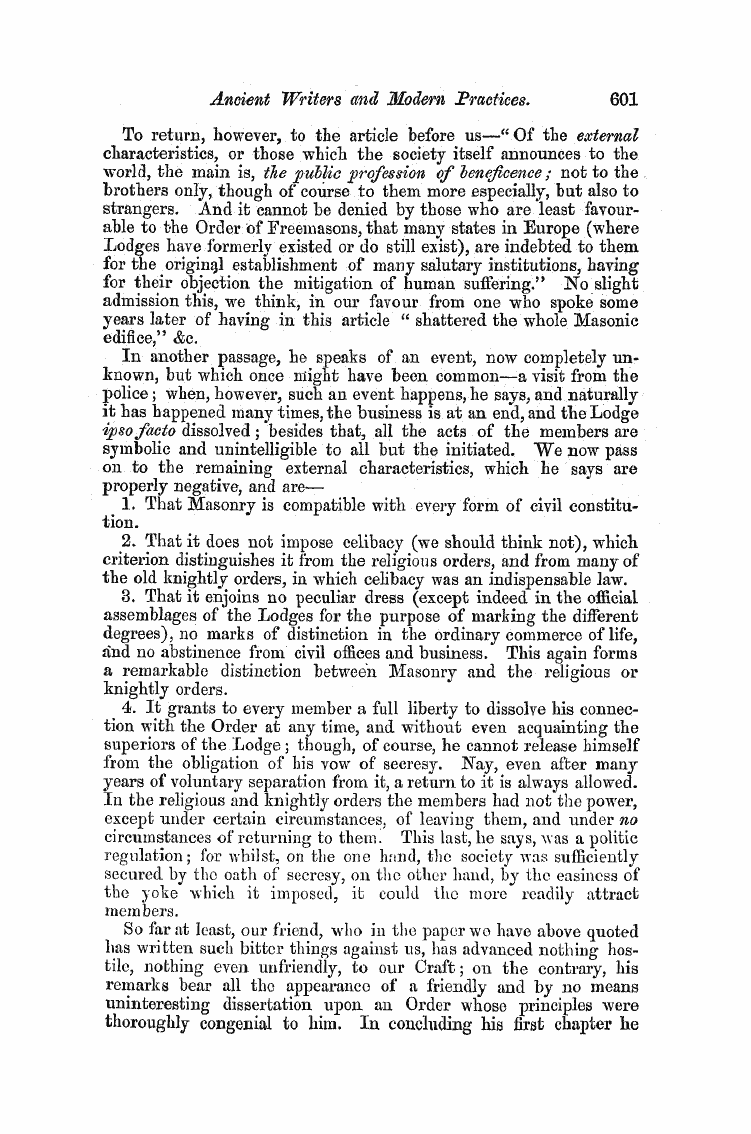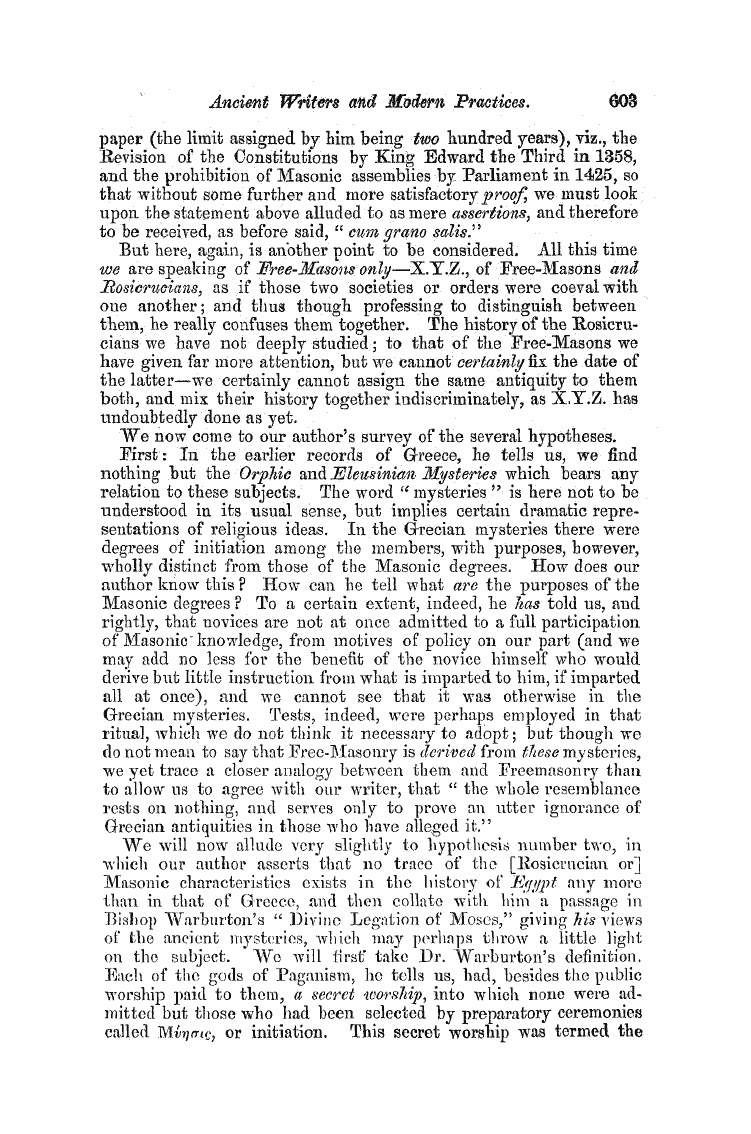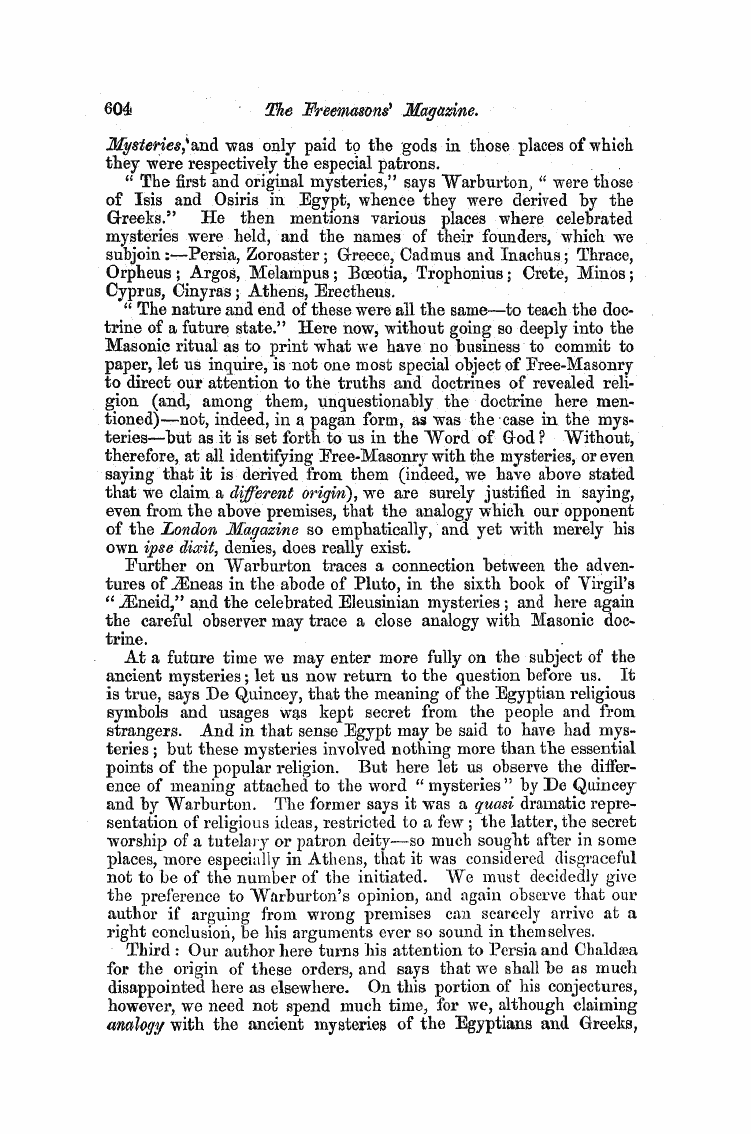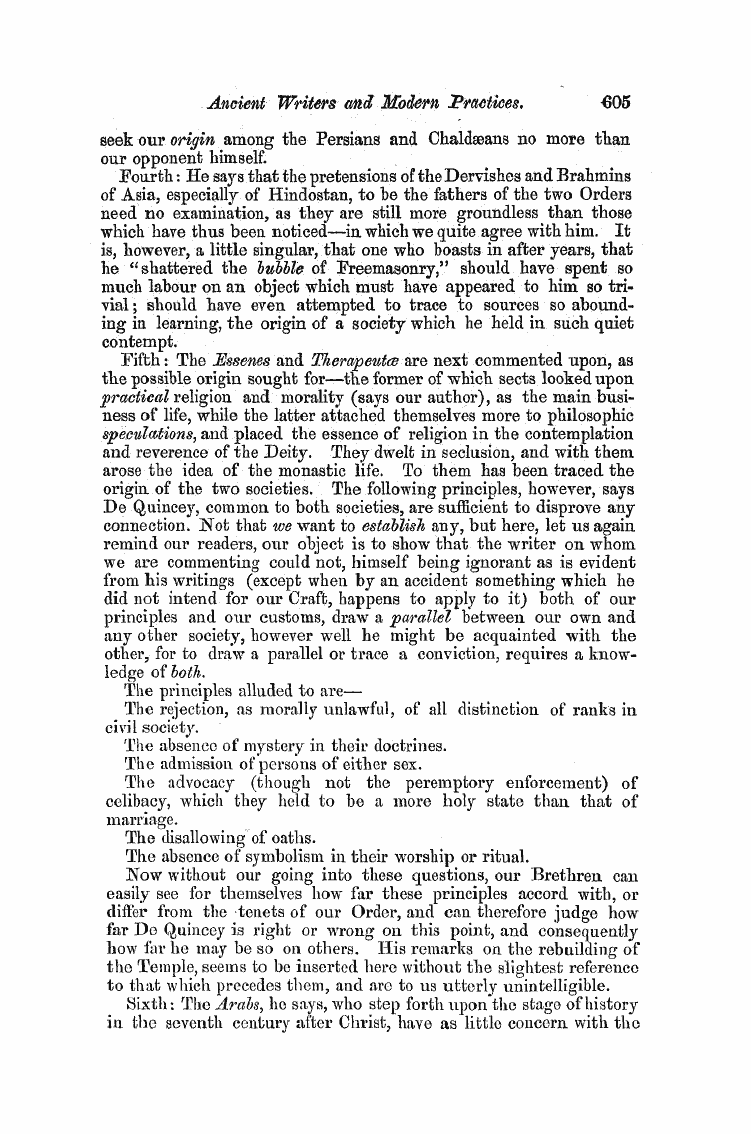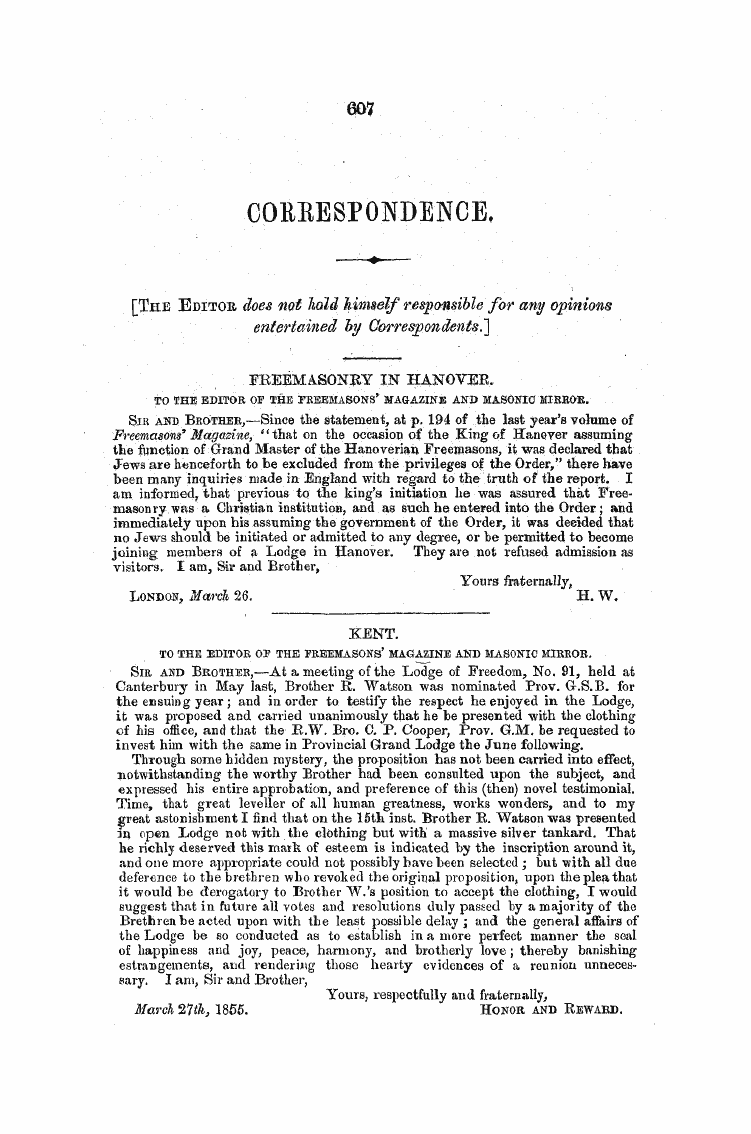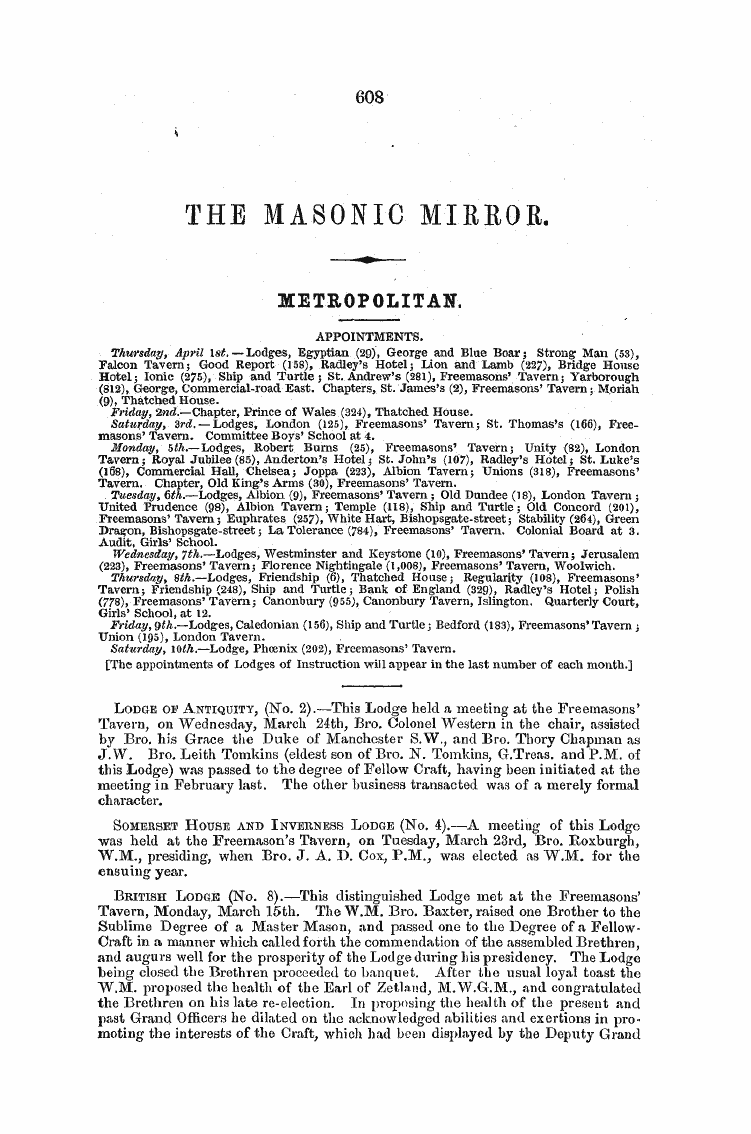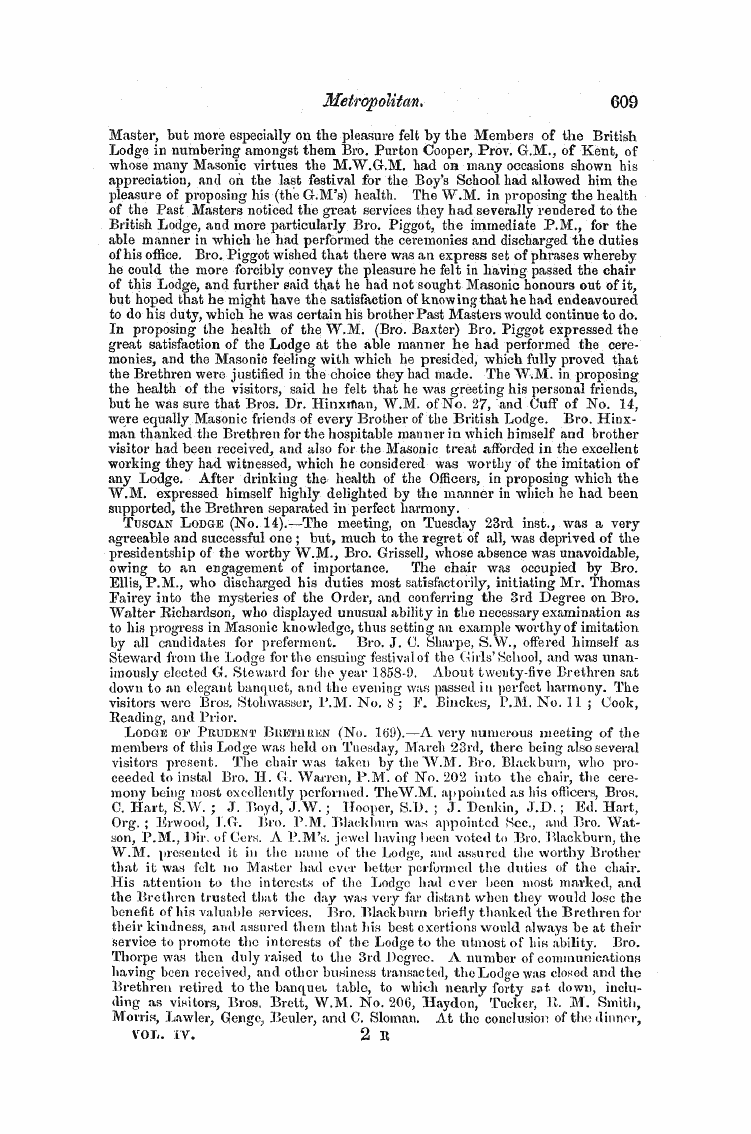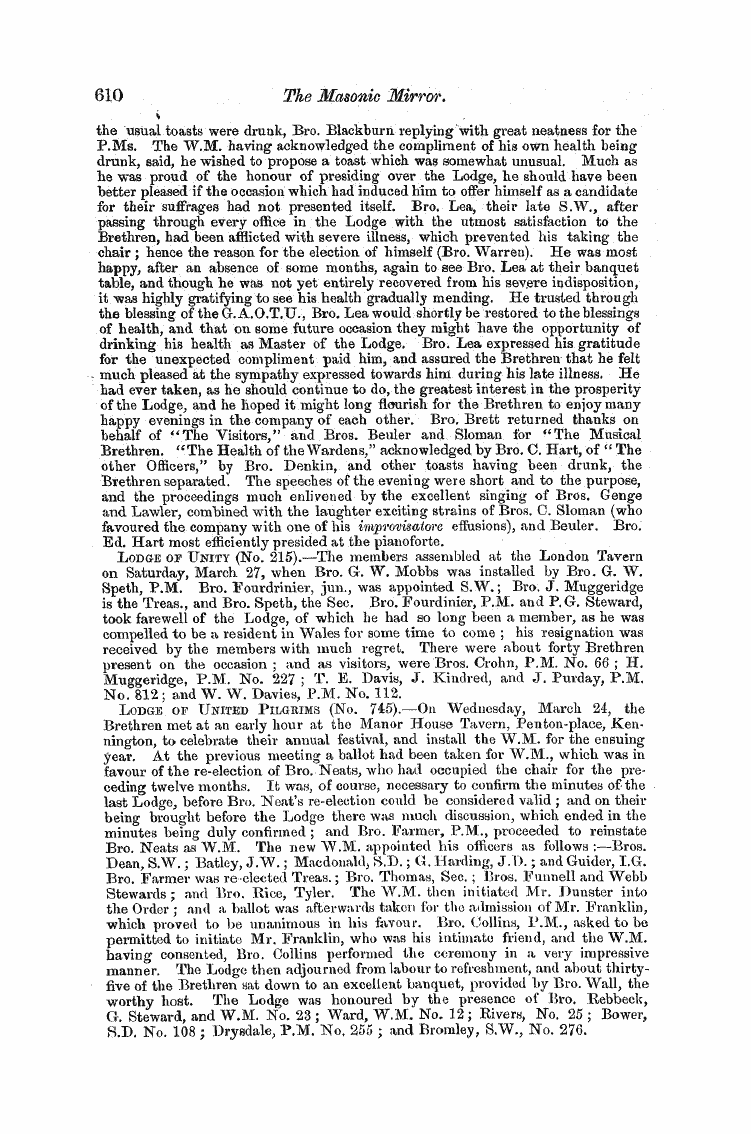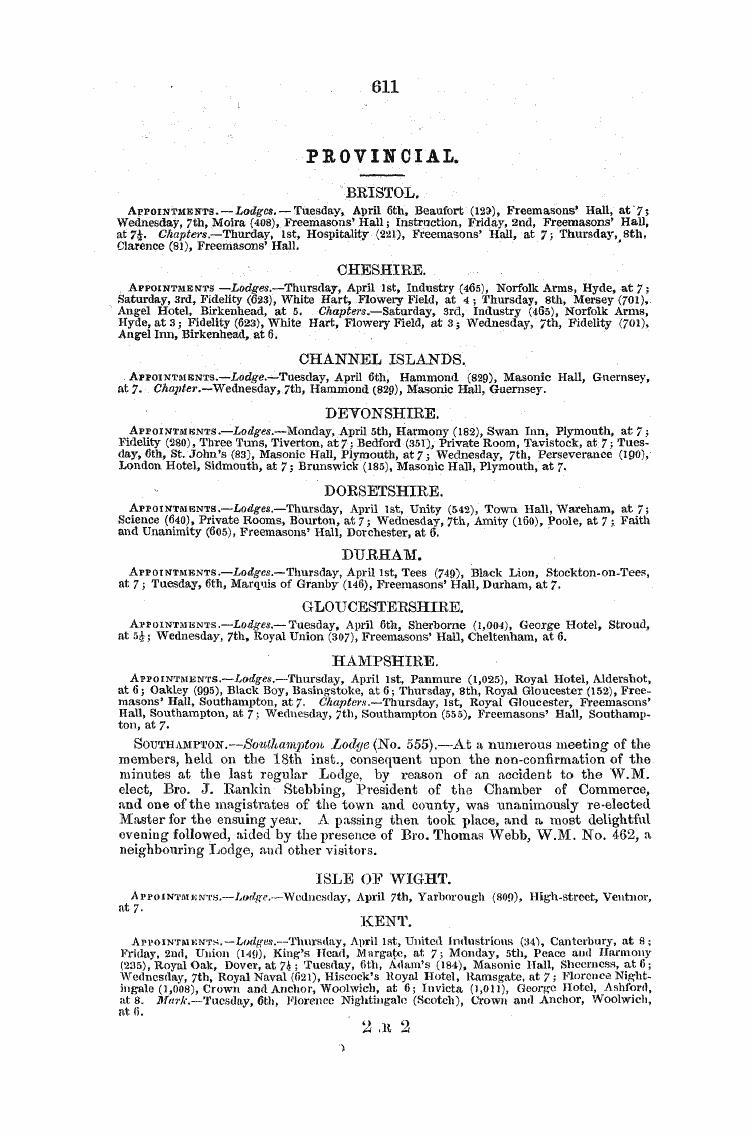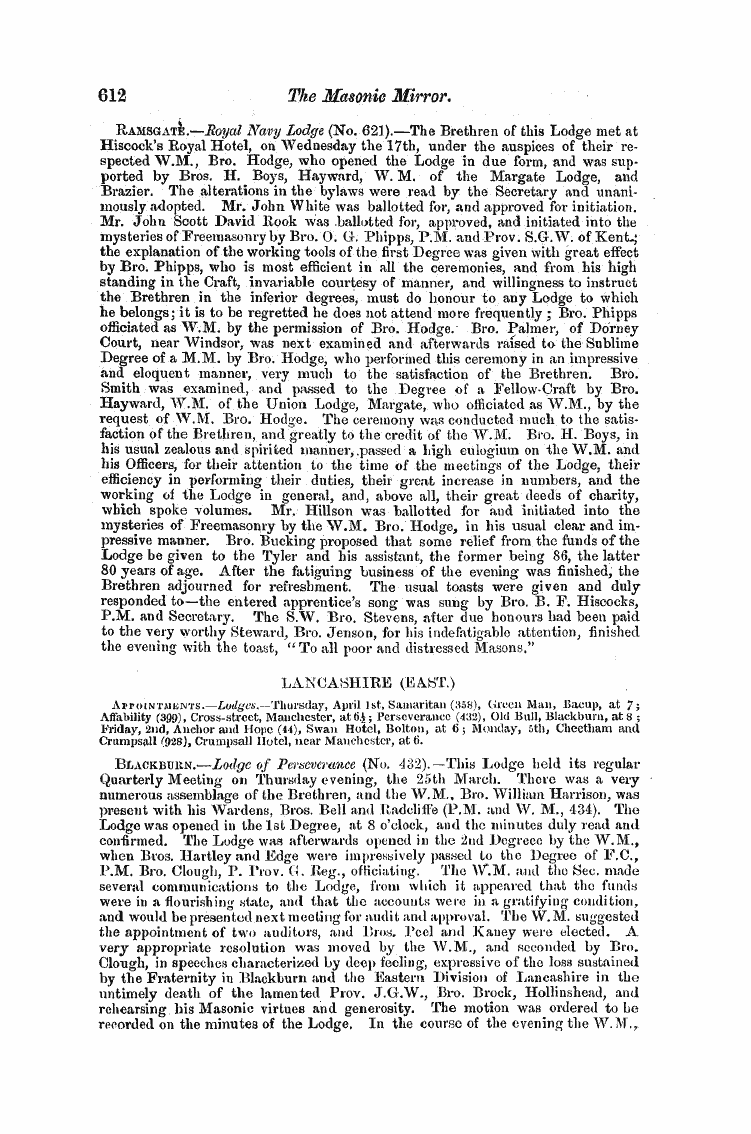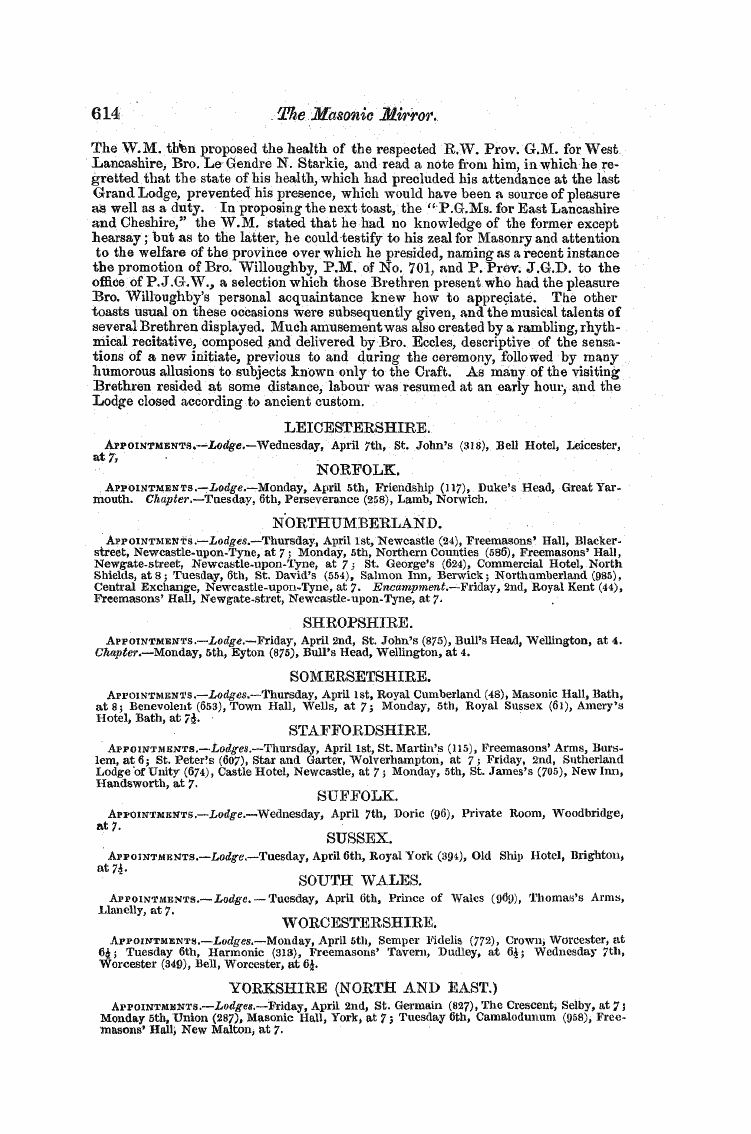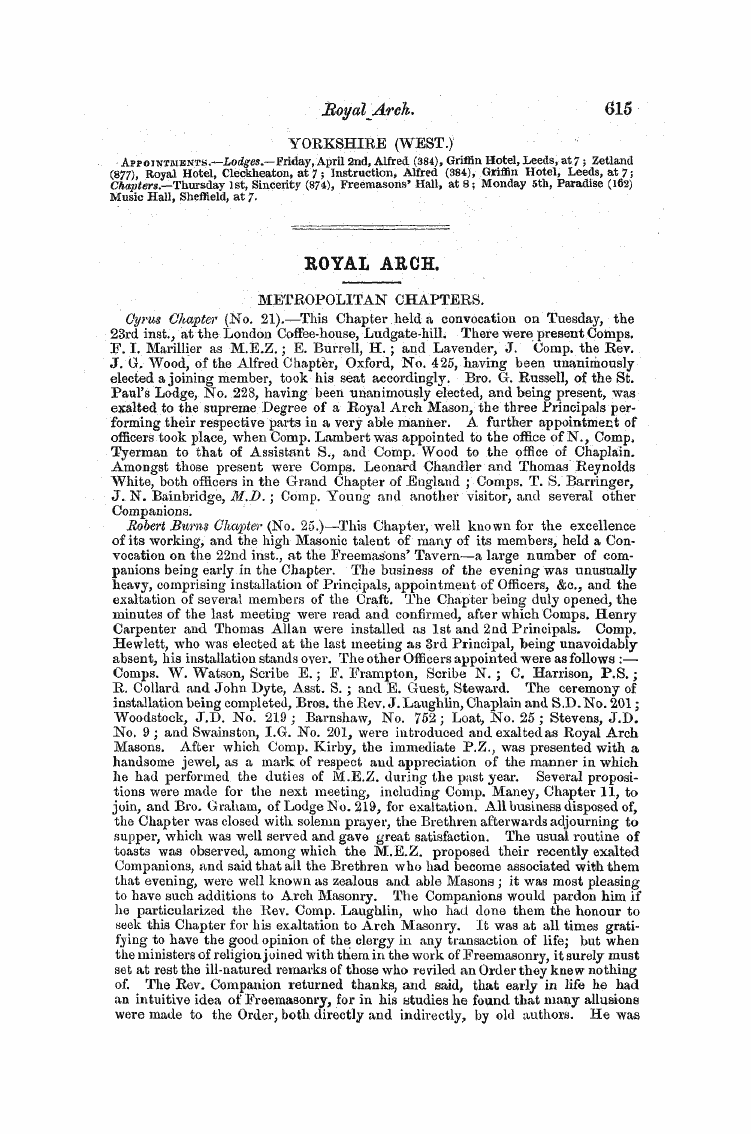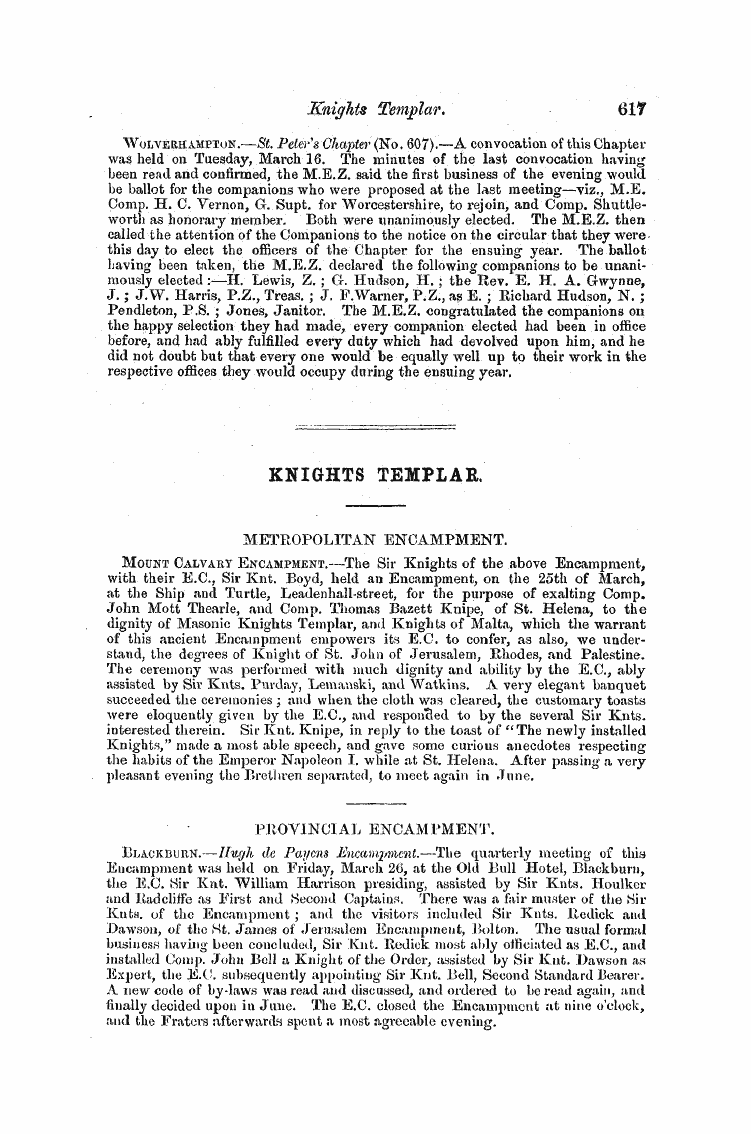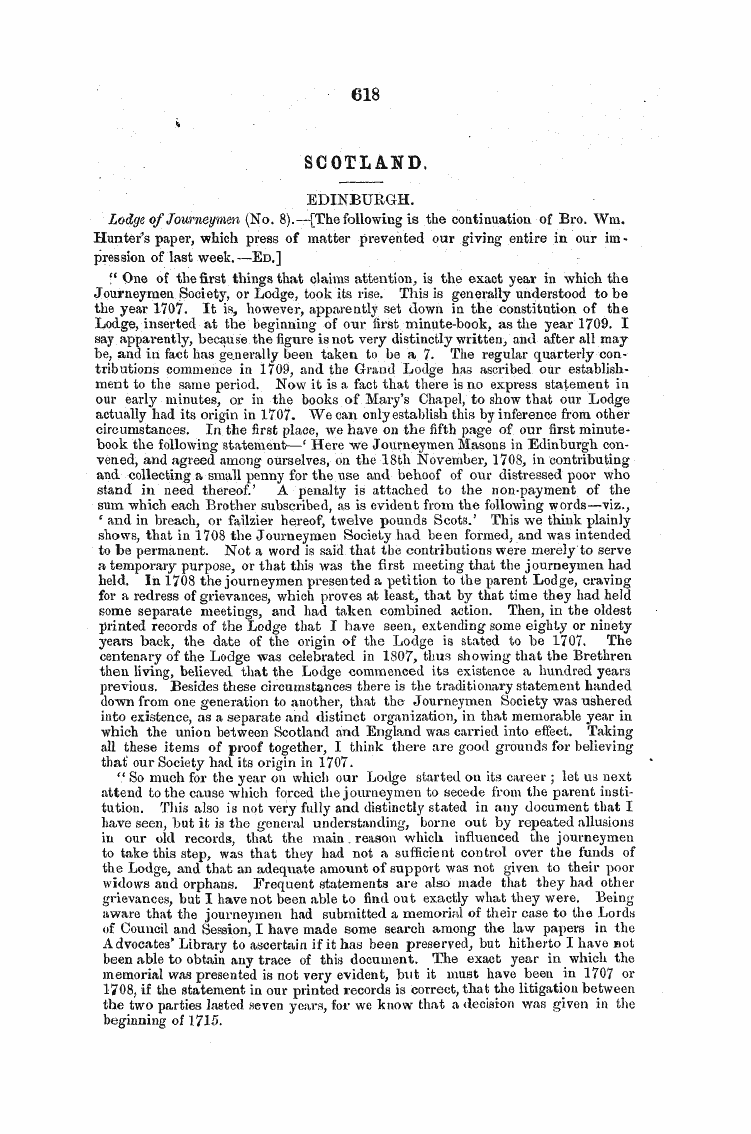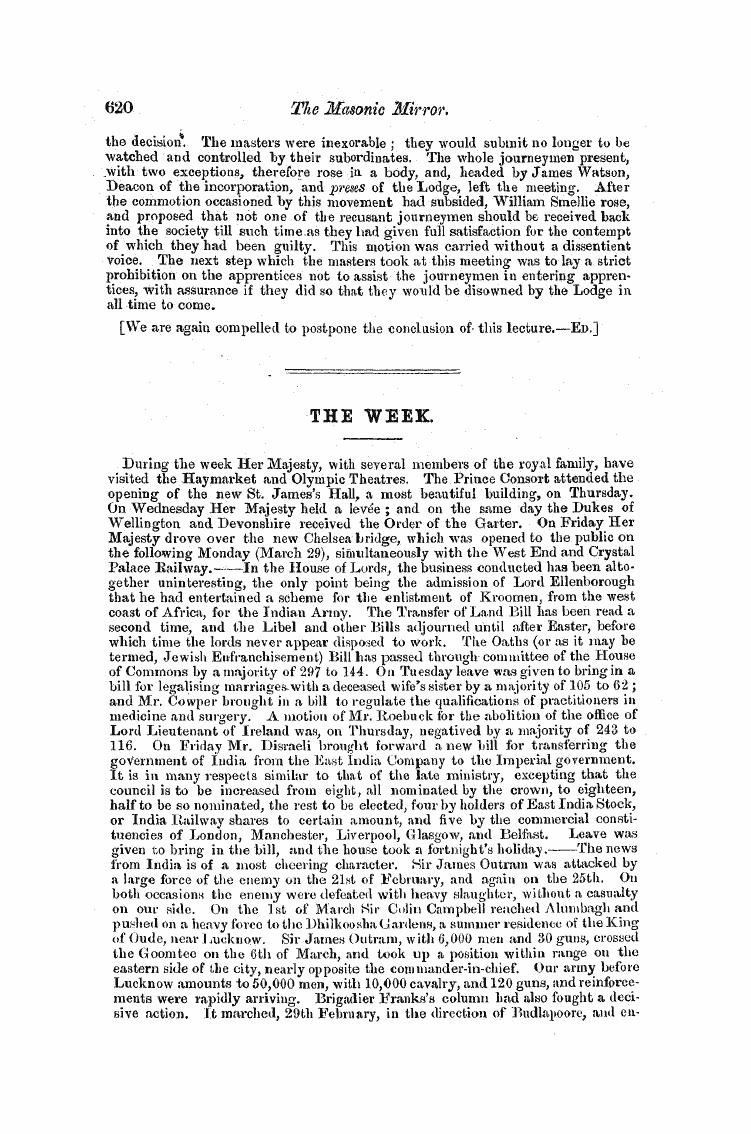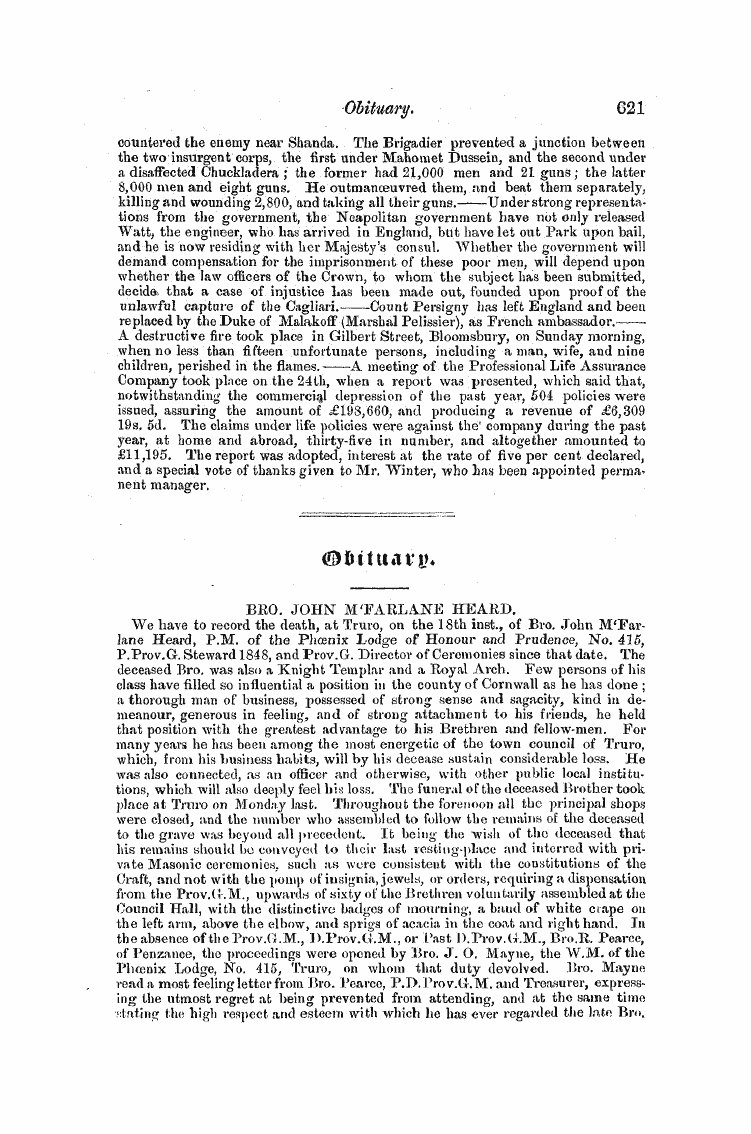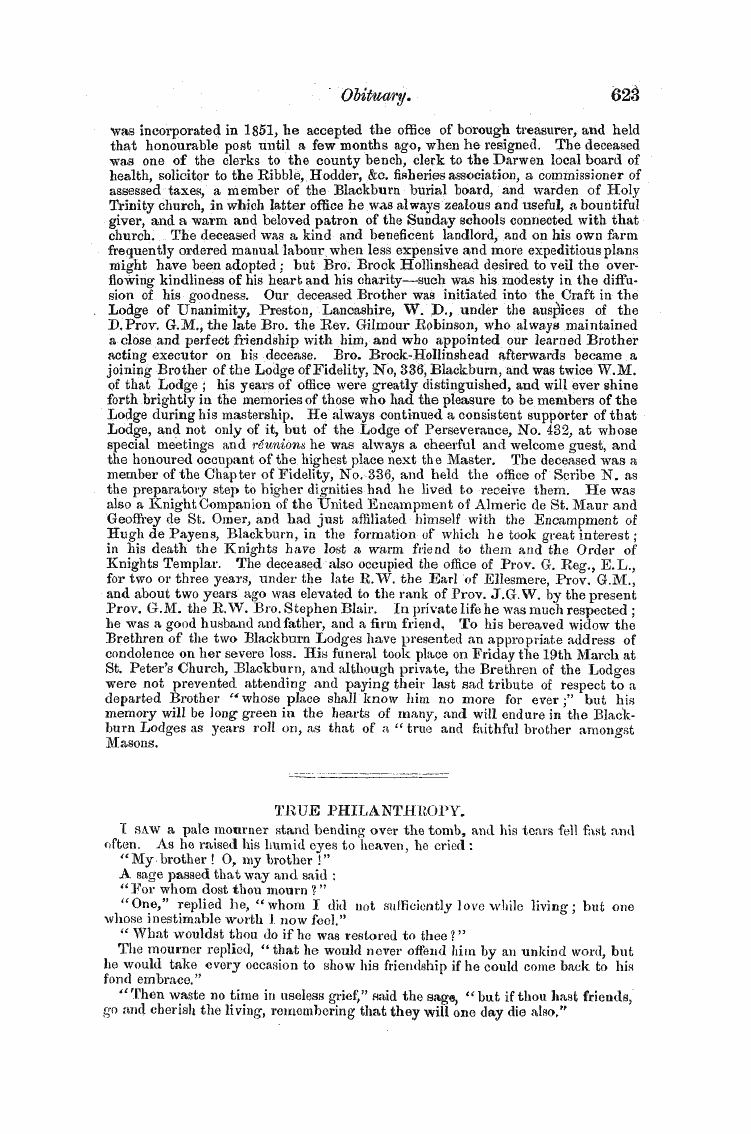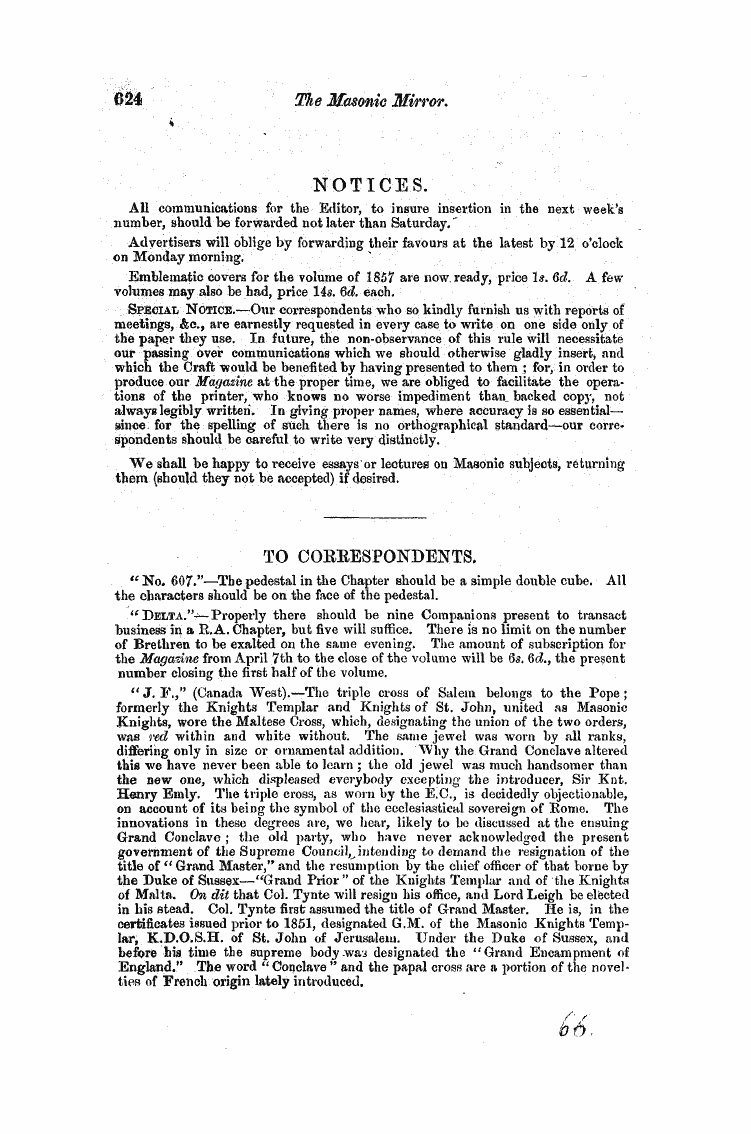-
Articles/Ads
Article COIRESPGNDENCE. ← Page 5 of 11 →
Note: This text has been automatically extracted via Optical Character Recognition (OCR) software.
Coirespgndence.
its influence felt , even in the Christian world ,, amongst the Boman Catholics of Spain , Italy , and Naples , who denounce and launch the thunders of the Yatican against it ; or amongst the uninitiated Anglo-Saxons , whether in Great Britain or America—the prisoner , the cowan , or the profane ? Does it operate beneficially
on the female portion of the community , whom it systematically excludes , and who , in many cases , repudiate and condemn it ; on private soldiers , and uneducated men , who are equally ineligible for initiation or on whole villages of agricultural labourers , who are ignorant of its existence ¦? Nothing like it . How , then , can its influence be unbounded , or how can it be consistently pronounced a universal institution ?
4 th . We are free to admit that some of the advocates for the universality of Masonry are more moderate in their demands , and confine the argument solely to the universal application of its symbols , which , they contend , will admit of a solution favourable to the professors of every existing religion . On this hypothesis the Christian , the Jew . the Turk , the Buddhist , is at liberty to improvise
an interpretation according to his own fancy , whether it be (< to point a moral or adorn a tale ; " and hence it is hastily concluded that the symbols of Masonry , at least , are absolutely universal . But even if we admit the premises to be correct , we might reasonably demur to the conclusion which is deduced from them ; for instead of proving Freemasonry to be universal they would only show that it is latitudinarian .
And this is not all , for the universalists , in order to confirm their theory , are bound to establish the assumption that the symbols of Masonry are really of so uncertain a character as to admit of various and hostile interpretation—which , I think , they would find a very difficult task . If such an attempt w ere made , it would signally fail ; for the explication of the Masonic symbols is certain and uniform ; and the slightest deviation from their legitimate meaning would be productive of inextricable confusion to the society . If a loose and arbitrary mode of interpretation were to receive the sanction of authority , the system would fall in pieces , and its landmarks be shattered like a potter ' s vessel .
Having thus demonstrated the fallacy of affirmative arguments , I shall now proceed to consider the negative proposition , and state my reasons for supposing that Freemasonry has no legitimate claims to the attribute of universality . And it will throw some light upon the inquiry if we consider , first , the abstract meaning of the word universal . Our great lexicographer describes it thus :- — " ( I ) general ,
extending to all ; ( 2 ) total , whole ; ( 3 ) not particular , comprising all particulars . " If the first of these meanings be applied exclusively to the society of Freemasons , the advocates of universality will naturally conclude that , as it extends universally over the Fraternity wherever Lodges have been established , its influence is therefare necessarily unbounded in all countries where it flourishes , so far as the members of the Craft are concerned . And I do not feel inclined to disturb the
assumption , because so limited an operation excludes all idea of universal ^ . For by the same rule , the Order of the Garter , the bar , or the stage , might bo pronounced universal , which would be an absurdity that no sane person would think of advancing . For , secondly , it must be total , and embrace the whole , not merely of a small and comparatively insignificant bod }' , but of the entire human species , without exception ; which Freemasonry never did , nor ever can . Universal ! Where was Freemasonry at the latter end of the seventeenth century , and what was its character then ' ( The annals of tho Craft shall answer the question .
"In the beginning of the reign of Queen Anne , the Lmlycs wcrt - iiiorc and mon disused , partly by the neglect of Masters and Wardens , and parti } by not having a Noble Grand Master as in times past ; whereby the annual assembly was foi some years not duly attended . And what was the worst of all , Sir Ohristophci "Wren , through his great age , bodily infirmities , and retirement from business .
was no longer able to preside in their assemblies , by which the Craft suffered some detriment . After the rebellion was over in 1716 , there were only four Lodc / es remaining in the metropolis ; and the members , finding that their Grand Master was not able any more to attend them , thought fit to cement , under a Grand Master of their own choice , as the centre of union and harmony . "
Note: This text has been automatically extracted via Optical Character Recognition (OCR) software.
Coirespgndence.
its influence felt , even in the Christian world ,, amongst the Boman Catholics of Spain , Italy , and Naples , who denounce and launch the thunders of the Yatican against it ; or amongst the uninitiated Anglo-Saxons , whether in Great Britain or America—the prisoner , the cowan , or the profane ? Does it operate beneficially
on the female portion of the community , whom it systematically excludes , and who , in many cases , repudiate and condemn it ; on private soldiers , and uneducated men , who are equally ineligible for initiation or on whole villages of agricultural labourers , who are ignorant of its existence ¦? Nothing like it . How , then , can its influence be unbounded , or how can it be consistently pronounced a universal institution ?
4 th . We are free to admit that some of the advocates for the universality of Masonry are more moderate in their demands , and confine the argument solely to the universal application of its symbols , which , they contend , will admit of a solution favourable to the professors of every existing religion . On this hypothesis the Christian , the Jew . the Turk , the Buddhist , is at liberty to improvise
an interpretation according to his own fancy , whether it be (< to point a moral or adorn a tale ; " and hence it is hastily concluded that the symbols of Masonry , at least , are absolutely universal . But even if we admit the premises to be correct , we might reasonably demur to the conclusion which is deduced from them ; for instead of proving Freemasonry to be universal they would only show that it is latitudinarian .
And this is not all , for the universalists , in order to confirm their theory , are bound to establish the assumption that the symbols of Masonry are really of so uncertain a character as to admit of various and hostile interpretation—which , I think , they would find a very difficult task . If such an attempt w ere made , it would signally fail ; for the explication of the Masonic symbols is certain and uniform ; and the slightest deviation from their legitimate meaning would be productive of inextricable confusion to the society . If a loose and arbitrary mode of interpretation were to receive the sanction of authority , the system would fall in pieces , and its landmarks be shattered like a potter ' s vessel .
Having thus demonstrated the fallacy of affirmative arguments , I shall now proceed to consider the negative proposition , and state my reasons for supposing that Freemasonry has no legitimate claims to the attribute of universality . And it will throw some light upon the inquiry if we consider , first , the abstract meaning of the word universal . Our great lexicographer describes it thus :- — " ( I ) general ,
extending to all ; ( 2 ) total , whole ; ( 3 ) not particular , comprising all particulars . " If the first of these meanings be applied exclusively to the society of Freemasons , the advocates of universality will naturally conclude that , as it extends universally over the Fraternity wherever Lodges have been established , its influence is therefare necessarily unbounded in all countries where it flourishes , so far as the members of the Craft are concerned . And I do not feel inclined to disturb the
assumption , because so limited an operation excludes all idea of universal ^ . For by the same rule , the Order of the Garter , the bar , or the stage , might bo pronounced universal , which would be an absurdity that no sane person would think of advancing . For , secondly , it must be total , and embrace the whole , not merely of a small and comparatively insignificant bod }' , but of the entire human species , without exception ; which Freemasonry never did , nor ever can . Universal ! Where was Freemasonry at the latter end of the seventeenth century , and what was its character then ' ( The annals of tho Craft shall answer the question .
"In the beginning of the reign of Queen Anne , the Lmlycs wcrt - iiiorc and mon disused , partly by the neglect of Masters and Wardens , and parti } by not having a Noble Grand Master as in times past ; whereby the annual assembly was foi some years not duly attended . And what was the worst of all , Sir Ohristophci "Wren , through his great age , bodily infirmities , and retirement from business .
was no longer able to preside in their assemblies , by which the Craft suffered some detriment . After the rebellion was over in 1716 , there were only four Lodc / es remaining in the metropolis ; and the members , finding that their Grand Master was not able any more to attend them , thought fit to cement , under a Grand Master of their own choice , as the centre of union and harmony . "

































































































































































































